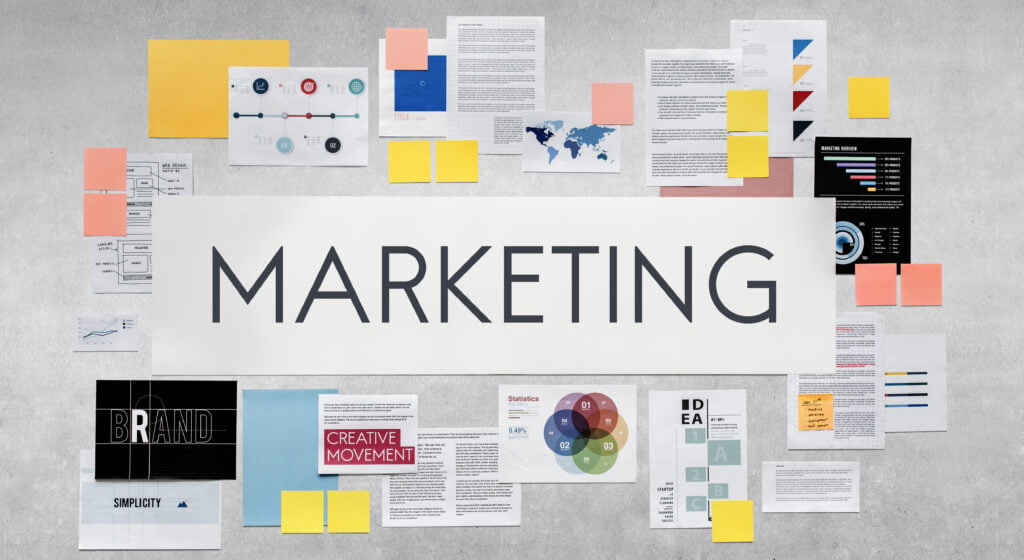
Top E-Commerce Marketing Strategies for Your Business
Successful marketing tactics are essential in the realm of E-Commerce for attracting visitors, turning those visitors into customers, and developing a credible online brand. Despite the fact that different corporate goals may necessitate different techniques, it is crucial to establish these goals, evaluate previous successes and failures, pinpoint problem areas, and rank them in order of importance. The ability to be patient is essential since it often takes time to adopt and perfect a strategy. We will look at a variety of efficient E-Commerce marketing tactics in this article, bearing in mind how crucial it is to match them to your own company’s needs.
Content Marketing For E-Commerce
To drive organic traffic to your website, content marketing entails producing and disseminating useful material such as blogs, videos, infographics, e-books, and tutorials. Content marketing helps build your brand as a reliable resource by addressing the problems of your audience and offering authoritative solutions. It improves connections with customers, raises website traffic, produces leads, and eventually increases revenue. Determine the demands of your target audience, select platforms and content formats that are appropriate, and continually produce new, pertinent, and interesting material to maximise the efficacy of content marketing.
Email Marketing For E-Commerce
You may use email marketing to nurture leads, advertise products or services, and develop brand loyalty. Sending well-crafted emails right to your subscribers’ inboxes puts your company at the forefront of their minds. Build a mailing list of subscribers that have voluntarily opted in and believe in the value you give to assure success with email marketing. Create attention-grabbing subject lines and provide relevant material that is targeted to your audience’s interests and demands.
Social Media Marketing (SMM) For E-Commerce
Social media marketing entails using social media platforms to promote your E-Commerce business. This method can be used independently or in conjunction with content marketing. Social media platforms have enormous reach, allowing for rapid engagement with a global audience. Engaging and shareable content has the potential to go viral, raising brand awareness and driving sales. To grab users’ attention, visual-heavy platforms require enticing visuals such as images, infographics, animations, and videos.
Search Engine Marketing (SEM) For E-Commerce
Search Engine Marketing (SEM) is concerned with advertising your E-Commerce site to users of search engines. SEM promotes your company to consumers looking for comparable products or services using pay-per-click (PPC) adverts. Your adverts compete for placement in auctions by picking relevant keywords and establishing a bid price. SEM generates traffic and leads quickly since it displays when consumers actively search for related items or information.
Search Engine Optimization (SEO) For E-Commerce
Search Engine Optimization (SEO) is the process of optimizing your website’s content for search engines in order to enhance organic traffic. SEO improves your website’s exposure in search engine result pages by including the proper keywords, offering original and relevant content, and establishing high-quality backlinks. It is critical to stay current with search engine algorithms in order to avoid fines and secure long-term success.
Affiliate Marketing
Affiliate marketing involves collaborating with marketers who promote your products or services through their platforms, such as blogs or videos. Affiliates earn a commission for each sale, click, or lead generated. This strategy allows for cost-effective and passive promotion, leveraging the influence and reach of partners in relevant niches.
Influencer Marketing
Influencer marketing harnesses the influence of social media celebrities to promote your eCommerce business. By partnering with influencers who have a loyal following, you can tap into their niche audience and build trust. Influencers create engaging content featuring your products or services, providing valuable endorsements and encouraging their followers to make purchases.
Personalization
Personalization is key to meeting customer expectations and building loyalty. By analyzing user behavior, preferences, and past browsing history, you can effectively offer tailored offers, product recommendations, and personalized emails. This, in turn, makes customers feel valued and significantly enhances their shopping experience. As a result, this approach leads to increased conversion rates and encourages repeat purchases.
UI/UX
User Experience and user interface are critical components when it comes to providing a pleasant and smooth online experience. A pleasant user experience is further enhanced by incorporating visually appealing design, ensuring logical navigation, maintaining rapid loading speeds, and streamlining checkout procedures. By comprehending your consumers’ wants and preferences, you can effectively optimize the design of your website. As a result, this leads to a user-friendly interface that not only stimulates interaction but also significantly boosts sales.
Conclusion
Implementing effective marketing techniques is critical for success in the ever-changing eCommerce industry. You can attract targeted traffic, engage customers, and build a strong online presence by combining content marketing, email marketing, social media marketing, search engine marketing, search engine optimisation, affiliate marketing, influencer marketing, personalization, and user experience optimization’s. To stay ahead in the competitive eCommerce industry, remember to integrate these strategies with the help of 7enz Digital and It solutions to your own business goals and to regularly review and change them.





